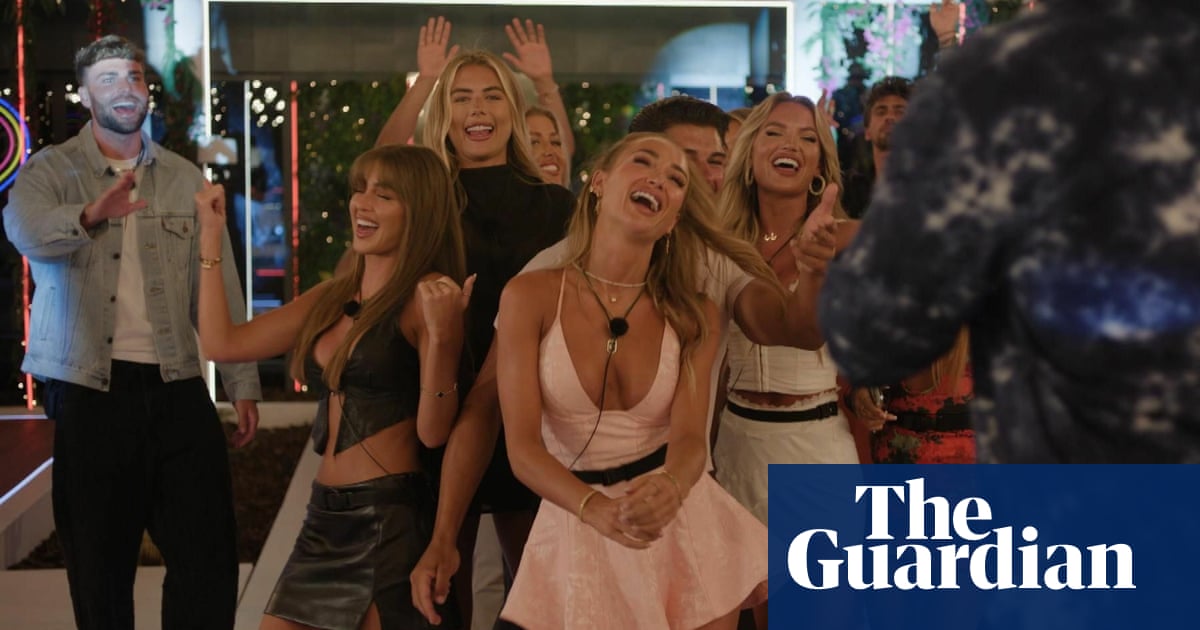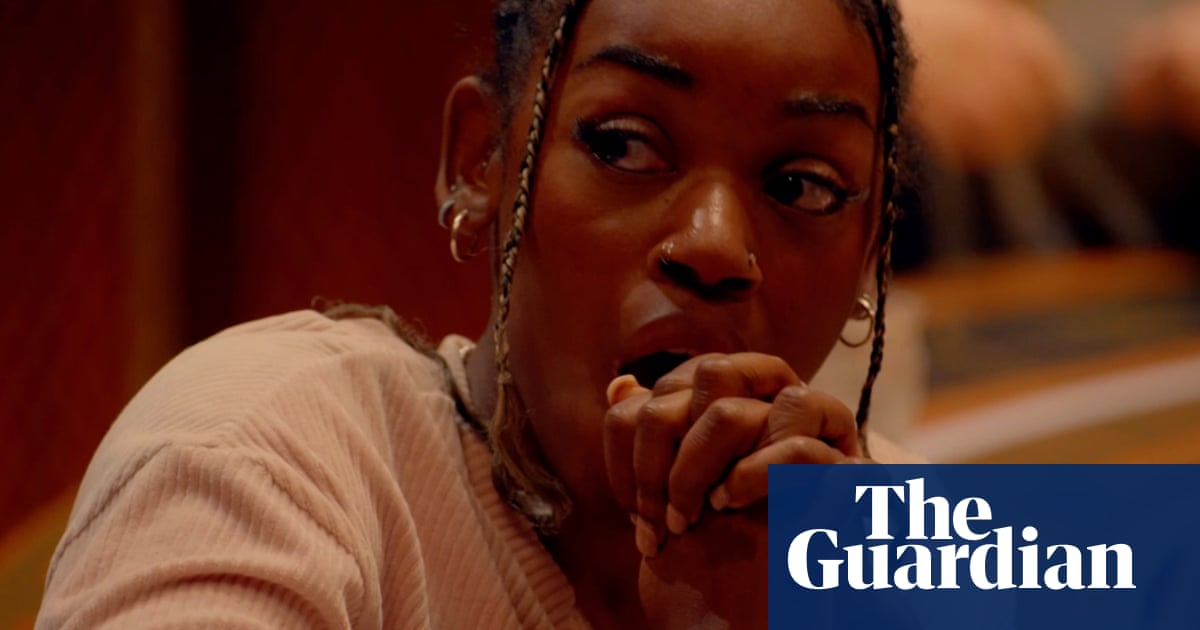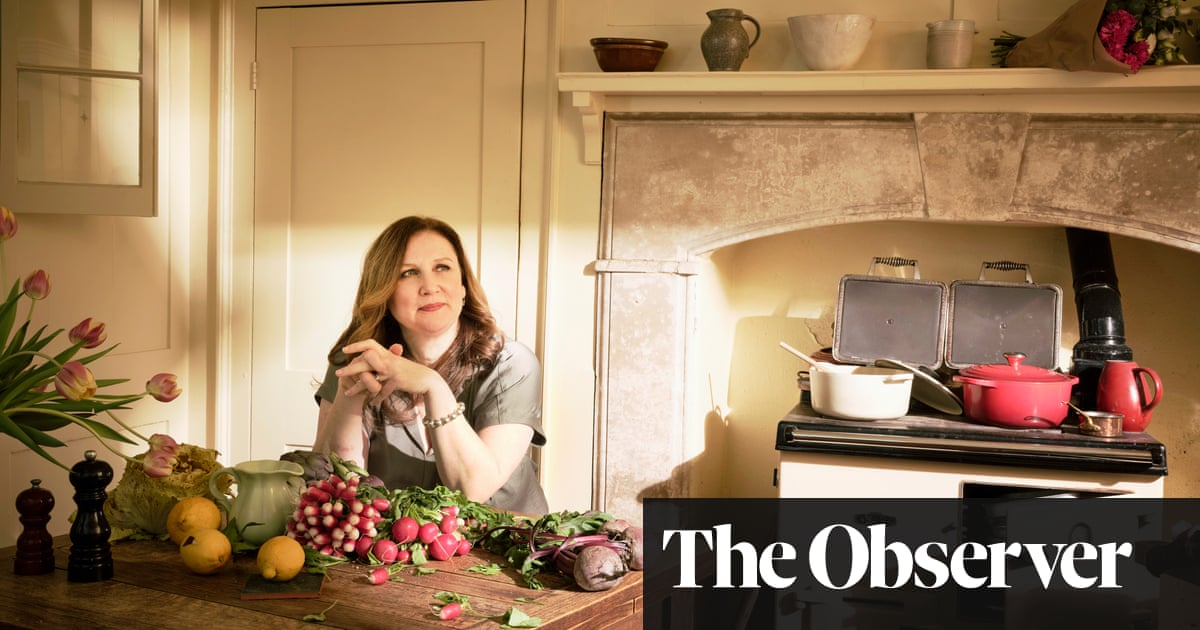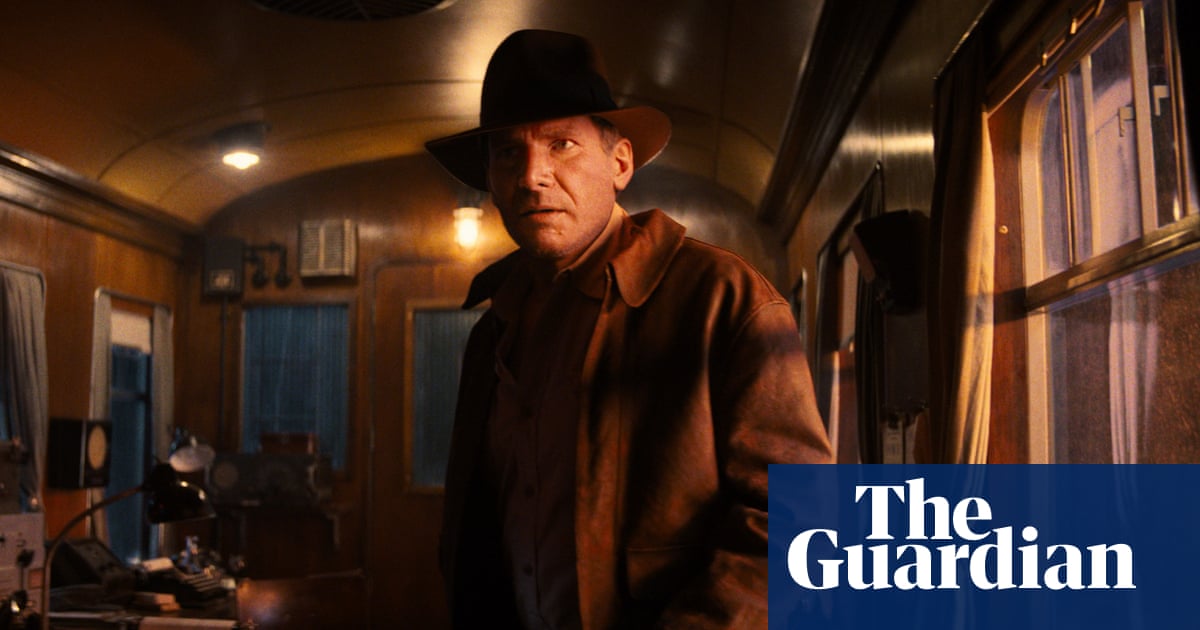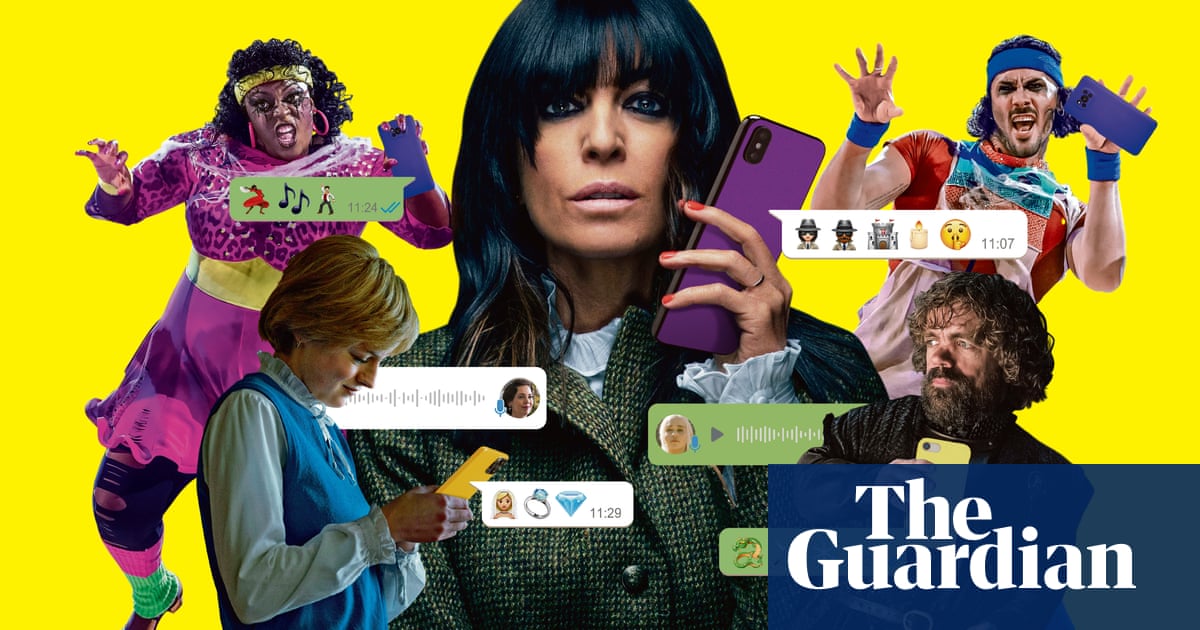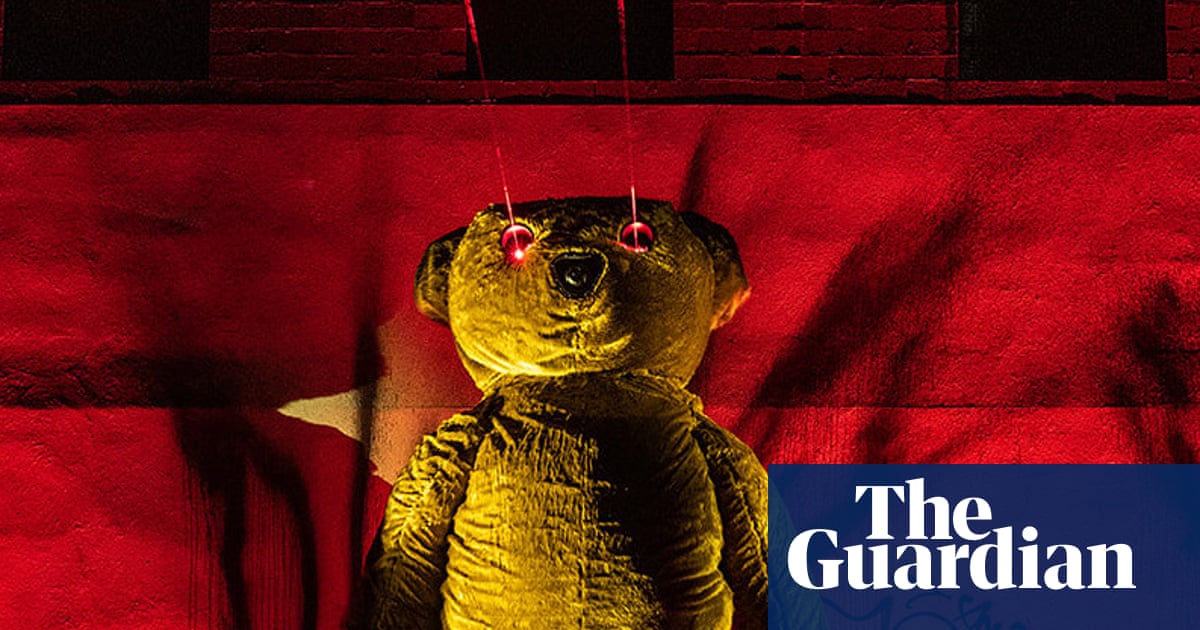
Best known for: movingly coaxing a public speech out of Musharaf Asghar.
We had the benefit of seeing Educating Essex before we did ours. Our headteacher, Johnny Mitchell, told us Channel 4 was interested, but at that point, you don’t know what your personal involvement will be. I just thought it was an opportunity for people to see a school that was doing a good job and cared deeply about its community.
It was strange to be greeted at work by someone from Channel 4 putting a microphone in your face but it becomes second nature. The people from the production company were phenomenal. They were in the school for so long that we developed a relationship. Eventually, they felt like colleagues. I’m still in touch with a lot of them.
And then the moment with Musharaf happened. I didn’t even really think about it until afterwards because, as a teacher, you just do it. But I came out of the classroom and the executive producer said to me: “Oh my God! The guys in the gallery are all crying.” I remain incredibly proud of Musharaf, and I feel humbled that I was a small part of that. Teachers up and down the country do these sorts of things every day. You’re trying something new to make something stick. And whether the breakthrough is as profound as that or just a student understanding how to use a full stop, it’s the same thing. It’s seeing a light go on.
I still see Mushy quite often. They showed the final episode again earlier this year, so I dropped him a message. He does a job that involves public speaking. I think lots of the kids at the school see him as this sort of mythical creature – his presence remains. He’s an adult now, though, with a thick beard.
In 2018, I was made headteacher. It wasn’t connected to the programme – it wasn’t, you know: “Because of what happened in episode eight of Educating Yorkshire, we must give this man a headteacher’s job.” It’s a brilliant job – challenging but also a privilege and a pleasure.
Hayley Pearce, The Call Centre
Best known for: excellent brews and hyperactive office banter.
I was so young, and I didn’t understand how big it was going to be. But it was a brilliant office to work in, so we knew it would be fun. For series two, people started wearing eyelashes to work and making an effort. But the film crew were there for about eight months, and we got so used to them being around that they became our friends anyway. I work in TV now, so I understand it’s part of their job to befriend you because that means you can open up on camera. So many people think we must have been acting. But none of it was set up. You’ve got to be yourself. Now, I’m sure if I was to watch The Call Centre back, I’d cringe. But everyone else found it hilarious. When it first screened, it was massive. The clubs and bars in Swansea all opened, and we had a big premiere.
I don’t regret a thing. They were the best days of my life, pushing that trolley around. And then the call centre moved to India for the second series, so I lived there for three months. Who gets to do things like that?
The producers used to say to me: “You’re really good on camera.” So people started thinking about stuff they could do with me on my own. Just before I went to India, I had a call from a producer saying she wanted to do a documentary just with me. I had a one-off, half-hour episode on tanning. That did well, so they wanted to do a series. And now here I am, four series on. I’m still a normal working-class girl but I went from pushing a trolley to being a TV presenter. I still work in offices and call centres. I’ve been lucky to have bosses who’ve been cool with me having time off for filming.
Some people have asked me why I still call myself Hayley the Tea Lady on social media. But it’s because that’s where it all started. If people didn’t still come up to me and say: “Oh my God, you’re the tea lady from The Call Centre,” I would have got rid! It baffles me because it was so long ago now. But people still remember it.
Momma Cherri, Ramsay’s Kitchen Nightmares
Best known for: cooking mouth-watering soul food and intimidating Gordon Ramsay slightly.
The restaurant needed a boost, and reality TV was becoming a thing. My first thought was going on Wife Swap. I thought that whoever the other wife was would have to work in the restaurant and then it would get noticed. But my husband wasn’t really up for that. And then, out of the blue, a letter came from Channel 4. The producer said to me: “Gordon is very particular. What makes you think your food is better than anyone else’s?” I said: “He can’t fry no chicken.”
The first thing Gordon said was: “Damn, this place is small.” He’s a big guy. He could hardly get through the door. I had watched the first series and seen the way he talked to people. So I said to him: “Gordon, do you swear at your mother? Well, I’m the momma!” I made him a big plate of food, and he came upstairs and said: “This is the first time on this show that I have ever finished a plate.” So I grabbed the plate off him. I didn’t know if they were going to accept me on the show but I wanted to take a picture of that plate. I fed Gordon Ramsay and he cleaned his plate. I figured if nothing else, that was going to be my tagline.
I loved Gordon. He’s got his facade, but he ain’t nothing but a big old teddy bear underneath. And because I respected him, I thought: “Why would I get him into my business and then argue with him?” I needed help and he recognised that. So he didn’t get no arguments out of me. There was some backchat, but only when I was joking with him. The final show was a completely fair representation of what happened.
When they came back, things had kind of fallen a bit. I was on my book tour and was busy with other things. And we went from doing 40 covers a night to 150. Things had taken off and everybody was jumping on the Momma Cherri bandwagon. Everybody wanted a piece of the pie. The bank manager was well into us. We needed a loan to keep it growing. Then, 2008 hit and there was a recession. I should have closed then, but I’m not someone who gives up. My daughter sold her flat and we did everything we could. My husband and I went bankrupt.
I have no regrets at all. I wouldn’t be able to be doing what I’m doing now if I hadn’t had that restaurant. I wish it hadn’t closed but the positives outweigh the negatives. At the moment, I have a YouTube cooking channel and I do Airbnb experiences so people can come and learn to cook soul food with me. And I’m working with a food bank in Brighton called City Food Share. They fund me to cook about 70 meals a week. And we give people who use food banks recipes and ideas about what they can do with raw produce. I love it – it’s how I express myself.
James Edwards, The Secret Life of the Zoo
Best known for: being lead keeper at Chester zoo. Exemplary elephant management.
I’m probably your quintessential “not very good with people, so I work with animals” kind of person. So it’s been a bit of a shock to have people paying me compliments. I refused to believe it for a time, but I’ve come to accept now that it’s been quite popular, so I must be doing something right.
For the most part, the crew have been great at working around us. It’s just that initial period when they first come down, and they think they’re going to get certain things straight away. And that’s not how it works – although they’re in captivity, these are wild animals, and they’re going to do whatever they want really. The big ones are births. Obviously, the crews are desperate to catch births on film. But with elephants, it’s a 22-month pregnancy with a large potential window at the end. So, for example, it could be any time between, say, June and August. And every day, someone in the crew will be asking: “Is it going to be today?” But it happens when it happens, and we’re used to that. But I think for them it’s a bit strange not knowing.
We’ve got to be very careful about what the crews can and can’t do. And if they’re new to the job, they’ll wander off sometimes. So you have to say: “No, don’t go near that elephant!” You’ve got to be very careful around these animals. We’re pretty strict because elephants can be so dangerous. Your hair stands on end sometimes. But we’re used to keeping the public safe so it’s not all that different from that really.
I’ve seen so many comments from people who didn’t like zoos but have watched the show and had their minds changed. People have certain impressions about what zoos are and a lot of that is based on things they may have seen and heard years ago when zoos were very different. And there probably still are zoos like that, but at places like Chester, we’re really pushing boundaries and when people see that on TV they rethink. That’s probably one of the biggest benefits that’s come from the show.
It’s not naturally something I’d have put my hand up to do – it’s not my personality at all. But the more I’ve done it, the more I’ve enjoyed it. And things have come from it. Earlier this year when the zoo was closed during the first lockdown, there was a campaign to get the government to overturn the decision. It was hairy for a bit, and we’ve had redundancies. Zoos were meant to stay shut but other things like theme parks were open. It was a really strange decision. And because I was on the show I went on the BBC and This Morning to talk about it. We actually got the government to change its policy and get zoos open again. That was a proud moment.
Educating Greater Manchester season six begins on Channel 4, on Tuesday 3 November




